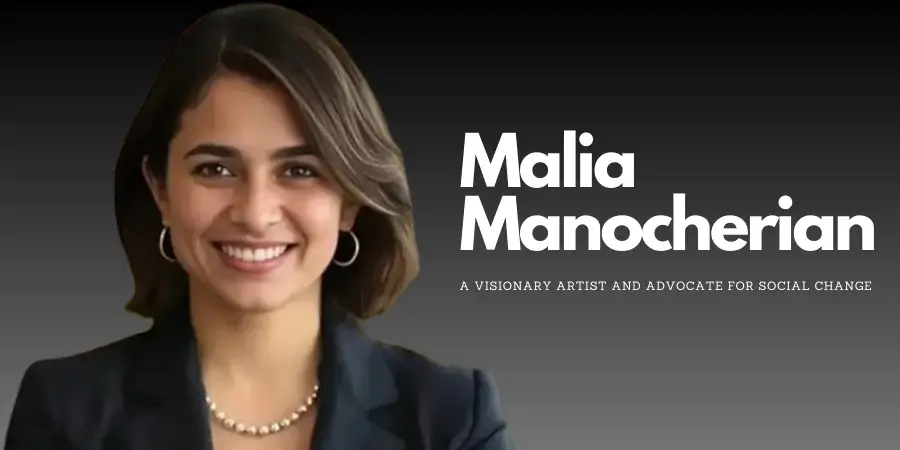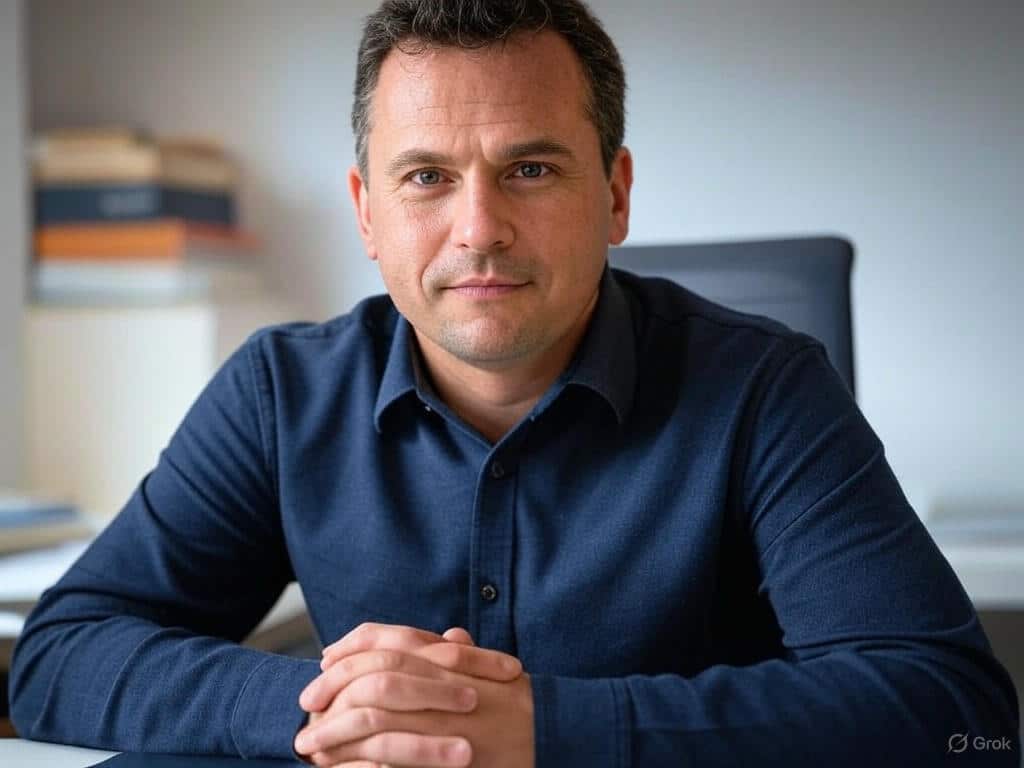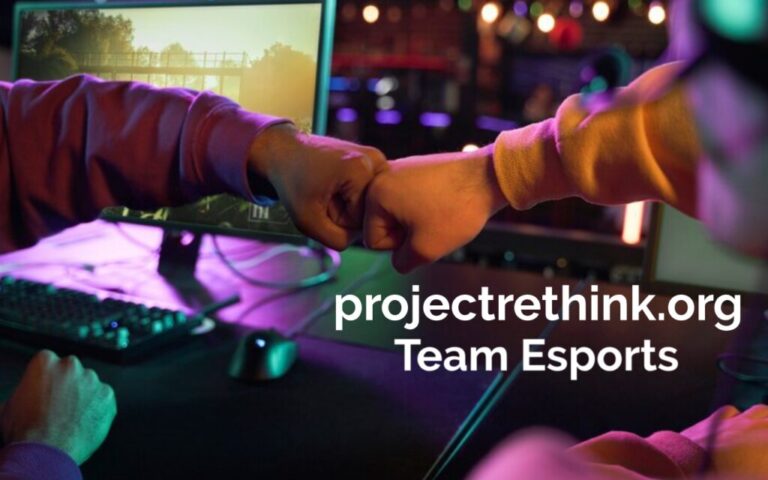Malia Manocherian: A Look into Her Life and Contributions

Have you ever wondered about the people who work behind the scenes, making things happen in different industries or communities? Sometimes, individuals contribute significantly without always being in the spotlight. Today, we’re taking a closer look at Malia Manocherian, exploring her background, potential career path, and the areas where she might be making a difference. Understanding the journeys of individuals like her can be inspiring and informative.
People come from all sorts of backgrounds, and their early lives often shape who they become. Their careers take different turns, marked by learning experiences, challenges, and successes. Many successful individuals also believe in giving back to society through charity and supporting causes they care about. Let’s explore these different parts of Malia Manocherian‘s story, piecing together a picture of her potential influence and activities based on publicly available connections and common paths in related fields.
Getting to Know Malia Manocherian
Learning about someone often starts with understanding where they came from. Our roots, family, and early experiences play a big role in shaping our future paths, values, and ambitions.
Early Life and Background
Everyone’s story begins somewhere. For Malia Manocherian, her background might be linked to a family known for its work in certain fields, potentially real estate or business, particularly if connected to the Manocherian family name prominent in New York City. Growing up in an environment with strong professional role models can often influence a person’s interests and career choices from a young age.
Think about your own childhood. Did your family, school, or the town you grew up in shape your dreams? Early life experiences are like the foundation of a building – they provide support for everything that comes later. Education is also a key part of this foundation. The schools attended, the subjects studied, and the early friendships formed can all contribute to personal development and future opportunities. While specific details about Malia Manocherian’s very early life might not be widely publicized, it’s reasonable to assume that her upbringing provided valuable lessons and potentially opened doors to future endeavors, as is common for individuals connected to established families. This early environment likely played a role in fostering skills and perspectives that would be useful later in her professional life.
The Career Journey of Malia Manocherian
A career isn’t usually a straight line; it’s more like a winding road with different milestones and learning opportunities along the way. Exploring someone’s career journey helps us understand their professional growth and impact.
Early Career Milestones
Starting a career is often about learning and gaining experience. For many, this involves first jobs, internships, or entry-level positions. These early steps are crucial for building skills, understanding an industry, and figuring out where one’s passions lie.
Imagine stepping into the working world for the first time. It’s exciting and maybe a little scary! Early career milestones could include:
- Completing initial projects successfully.
- Learning key industry practices.
- Building relationships with colleagues and mentors.
- Taking on small responsibilities that grow over time.
In the context of someone like Malia Manocherian, whose family might have established businesses, early career steps could involve learning the ropes within those family enterprises or related fields. This might mean roles in areas like property management, development, leasing, or finance, providing a hands-on education in the complexities of the industry. These initial experiences, regardless of the specific role, are vital for building confidence and a solid professional footing.
Notable Achievements and Projects
As a career progresses, individuals often have opportunities to work on significant projects or achieve notable successes. These achievements mark their contributions and demonstrate their capabilities. While specific, publicly documented major projects led solely by Malia Manocherian might be limited in public records (common for individuals who aren’t public figures), we can consider the types of achievements common in fields she might be associated with, such as real estate or business management.
Notable achievements in these areas could involve:
- Successful Project Management: Overseeing a project from start to finish, ensuring it meets goals, stays on budget, and is completed on time.
- Business Development: Identifying new opportunities, forming partnerships, or helping a company grow.
- Operational Improvements: Finding ways to make processes work better, saving time or resources.
- Team Leadership: Guiding a team effectively to achieve a common goal.
These kinds of accomplishments require skill, dedication, and often, collaboration. They contribute not only to the individual’s career growth but also to the success of the organizations they are part of. Any professional path is built on a series of such steps, big and small.
Professional Expertise and Industry Impact
Developing expertise means becoming really knowledgeable and skilled in certain areas. This expertise allows individuals to make valuable contributions to their field.
Areas of Specialization
Most professionals develop areas where they have deep knowledge or skill. This specialization allows them to tackle complex problems and offer unique insights. Based on potential family connections and industry norms, possible areas of specialization for Malia Manocherian could include:
- Real Estate Management: Understanding the ins and outs of managing properties, dealing with tenants, and maintaining buildings.
- Real Estate Development: Being involved in the process of creating new buildings or renovating existing ones.
- Business Operations: Knowing how to run the day-to-day activities of a company smoothly.
- Philanthropic Management: If involved in charitable work, understanding how to run foundations or manage donations effectively.
Specialization doesn’t happen overnight. It comes from years of experience, continuous learning, and focusing on specific aspects of a field. Having specialized knowledge makes a professional a valuable asset to their team and industry.
Recognized Contributions to Her Industry
Making contributions means adding value to your field. This can happen in many ways, from completing successful projects to sharing knowledge or mentoring others. Recognition might come through formal awards, positive results, or respect from peers.
While Malia Manocherian may operate outside the constant public gaze, contributions within her likely sphere (e.g., a family business or specific industry sector) are often recognized internally or within professional circles. These contributions could be things like:
- Helping a company navigate challenging market conditions.
- Implementing innovative solutions to problems.
- Playing a key role in the success of specific deals or developments.
- Contributing to the positive reputation of an organization.
Recognition isn’t always about headlines; sometimes it’s about the steady, reliable work that keeps businesses and industries moving forward. Every professional who dedicates their skills and effort contributes to the larger ecosystem of their industry.
Malia Manocherian’s Industry Influence
Influence isn’t just about being famous; it’s about the impact a person has on their work environment, colleagues, and the broader trends within their industry.
Impact on Colleagues and Industry Trends
People in professional roles often influence those around them. This can be through mentorship, setting high standards, or fostering a positive work culture. Leaders and experienced professionals can shape the careers of junior colleagues and contribute to a collaborative atmosphere.
Furthermore, individuals involved in established businesses can sometimes influence industry trends, even subtly. This might happen through:
- Adopting new technologies or practices that others follow.
- Participating in industry groups where ideas are shared.
- Making business decisions that reflect or shape market directions.
The impact of Malia Manocherian might be felt most directly within her specific organization or network. By upholding certain values or approaches to business, she could influence company culture and operational methods. Even decisions made within a single significant company can ripple outwards and affect broader industry practices over time.
Professional Network and Collaborations
Success in any field rarely happens in isolation. Building a strong professional network and collaborating with others is crucial. This involves connecting with peers, mentors, partners, and other stakeholders.
A professional network provides:
- Opportunities for learning and sharing knowledge.
- Potential for partnerships and joint ventures.
- Support and advice during challenging times.
- Access to resources and new opportunities.
Collaboration means working together towards common goals. In fields like real estate or business, collaborations are essential for large projects, deals, and navigating complex regulations. Individuals like Malia Manocherian likely engage with a network of professionals – lawyers, architects, financiers, contractors, community leaders – to achieve objectives. These relationships are built on trust, mutual respect, and shared goals, forming the backbone of many successful endeavors.
Leadership and Vision
Leadership is about guiding others and setting a direction for the future. Effective leaders inspire their teams and have a clear vision for where they want to go.
Leadership Style
Everyone leads differently. Some leaders are very hands-on, while others delegate more. Some are very decisive, while others prefer a more collaborative approach. A person’s leadership style often reflects their personality, experiences, and the needs of their team or organization.
Potential aspects of a leadership style could include:
- Communication: How clearly and openly a leader communicates with their team.
- Decision-Making: How choices are made – individually, consultatively, or by consensus.
- Motivation: How a leader inspires and encourages others.
- Empathy: Understanding and considering the perspectives and feelings of team members.
Without specific public accounts, it’s hard to define Malia Manocherian’s exact leadership style. However, effective leadership in complex fields often requires a blend of decisiveness (to make tough calls) and collaboration (to leverage team expertise). Leaders in family-run businesses also often emphasize loyalty, long-term thinking, and upholding the family’s reputation, which might shape their approach.
Vision for Future Projects
Having a vision means looking ahead and planning for the future. Leaders need to anticipate changes, set goals, and guide their organizations toward long-term success. This involves thinking about:
- Where the industry is heading.
- What new opportunities might arise.
- How the organization can adapt and grow.
- What kind of impact they want to make.
A vision provides direction and purpose. For someone potentially involved in real estate or long-standing businesses, future vision might involve sustainable development, adapting properties for new uses, expanding into new markets, or ensuring the longevity and continued success of the enterprise for future generations. It could also involve integrating new technologies or responding to changing community needs. This forward-thinking approach is essential for staying relevant and successful over the long term.
Beyond Business: Philanthropic Efforts
Many successful individuals and families believe in giving back to the community. Philanthropy involves using private resources for public good, supporting causes that matter.
Charitable Endeavors
Charitable activities can take many forms. It might involve donating money, volunteering time, or using one’s skills to help non-profit organizations. Families with a history in business often establish foundations or participate actively in supporting various charities.
Potential areas of charitable focus could include:
- Arts and Culture: Supporting museums, theaters, and arts education.
- Education: Funding scholarships, schools, or educational programs.
- Healthcare: Donating to hospitals, medical research, or health initiatives.
- Community Development: Supporting local programs that improve neighborhoods or help those in need.
If Malia Manocherian is involved in philanthropy, perhaps through family foundations or personal initiatives, her efforts would contribute to the well-being of the community. This aspect of a person’s life shows a commitment beyond just professional success, reflecting values of social responsibility and a desire to make a positive difference.
Social Causes Malia Supports
Beyond general charity, many people feel strongly about specific social causes. These are issues they care deeply about and want to help address. Examples might include environmental protection, social justice, animal welfare, or supporting specific vulnerable populations.
Supporting social causes can involve:
- Advocacy: Speaking out or raising awareness about an issue.
- Direct Support: Providing resources or aid to organizations working on the cause.
- Strategic Giving: Focusing philanthropic efforts on areas where they can have the most impact.
Identifying the specific social causes Malia Manocherian might support would require more public information. However, individuals often align their giving with their personal values or experiences. Supporting social causes is another way people contribute to society and work towards creating a better world, reflecting a deeper sense of purpose.
The Enduring Legacy of Malia Manocherian
Legacy isn’t just about what happens when someone is gone; it’s about the lasting impact of their work and actions. It’s the influence they have on their industry, community, and the people they interact with. For someone like Malia Manocherian, legacy might be tied to the continued success and ethical operation of businesses she’s involved with, the positive outcomes of any philanthropic work, and the values passed down within her family or organization. It could be seen in buildings that serve communities, jobs created, or charitable initiatives that continue to help people. A legacy is built gradually through consistent effort, integrity, and a commitment to making a positive contribution, whether in the public eye or behind the scenes.
Conclusion:
Exploring the different facets of a person’s life – from their background and career to their potential leadership and philanthropic interests – helps paint a more complete picture. While Malia Manocherian may not be a household name for everyone, understanding her potential journey provides insight into the kind of dedication and multifaceted roles individuals can play within significant industries and communities. Whether through business acumen, contributions to specific projects, or a commitment to giving back, people like her often form part of the complex fabric that shapes our cities and societies. Her story, like many others operating effectively away from the constant spotlight, reminds us that impact and influence come in many forms.

James Carter is an experienced content creator specializing in lifestyle and technology. With over a decade of writing for reputable blogs, he delivers well-researched, engaging articles. James holds a degree in Communications and is passionate about sharing expert insights, ensuring credibility and value for DriveMad’s readers.




